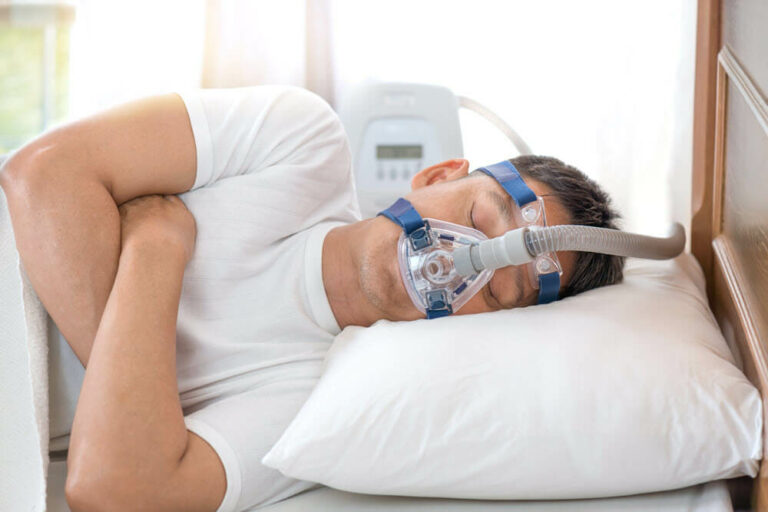Whether for leisure or business, traveling is always an exciting and fun experience. However, extended time on the road and long flights, in particular, have a downside as well, especially if you’re one of those people who have trouble sleeping during the flight or you suffer from sleep disorders. When you visit a part of the world with a different time zone from yours, you may experience jet lag.
Regardless of whether you’re just arriving at your destination or coming back home, jet lag can make your life very difficult.
In this article, we’ll explain the causes and the symptoms of jet lag, and you’ll get some travel tips on how to reduce the jet lag symptoms as well as how to get ready for long-haul flights without experiencing severe jet lag symptoms.
Let’s go!
What Is Jet Lag?
The human body naturally works on a so-called internal body clock. It’s a 24-hour cycle of wakefulness and sleep, also known as the circadian rhythm or the sleep-wake cycle. This indicates when it’s time to sleep, wake up, or eat. Thanks to the circadian rhythm, you start to feel tired and sleepy approximately at the same time every night.
If you travel long distances, you can put your sleep-wake cycle out of alignment. You might arrive at your new destination, let’s say at 9 a.m., but your internal clock tells your body that it is 7 p.m. This can cause you to feel confused and disoriented. Moreover, you might feel alert, hungry, or sleepy at the wrong hours, which is known as jet lag, flight fatigue, or desynchronosis. Many factors can worsen jet lag, and here are some of them:
- Traveling throughout several time zones. The longer you travel, the worse the jet lag is going to be because your circadian rhythm will need to adjust to a bigger time difference.
- Flying east. There is a phrase that says “west is best; east is a beast”. This is due to the fact that when you’re flying east, you “lose” time, and it’s more difficult for your body to beat the lost time than to merge the time that you can gain flying west.
- Your age plays a crucial part in jet lag. As you age, the jet lag will become worse.
Symptoms of Jet Lag
If the human body clock is all over the place, it’s extremely difficult to get a good night’s sleep. Here are some symptoms you might experience if you’re jet-lagged:
- Difficulties falling asleep;
- Unable to stay asleep throughout the night;
- Extreme tiredness during the day;
- Headaches;
- Daytime drowsiness;
- Cognitive problems, such as difficulty thinking, concentrating, and short-term memory issues;
- Feeling confused and disoriented;
- Dehydration;
- Mood swings;
- Aggravated asthma or allergies;
- Loss of appetite;
- Discomfort in your stomach, constipation, nausea, indigestion, and diarrhea.
How to Overcome Jet Lag?
There are some travel tips that you might find useful in order to avoid jet lag.
Get a Good Night Sleep Before Your Flight
Flying is maybe the most stressful part of every trip, and a good night’s sleep might be quite helpful. So, you better pack your luggage early and try to get quality sleep before you get on the airplane.
Use Melatonin
The human body naturally produces the melatonin hormone. The production of melatonin usually starts every night around the time you usually go to bed. Melatonin has two key functions: it helps sleep initiation and regulates your sleep-wake cycle. When your sleep-wake cycle is disturbed by jet lag, the timing of melatonin production can be thrown off.
However, taking melatonin supplements at the right time might help regulate your internal body clock. You can buy melatonin as an over-the-counter dietary supplement available without a doctor’s prescription. You can find prescription medications that can boost melatonin levels as well.
Most people can use melatonin supplements with no significant side effects, but some people can experience stomach problems or grogginess. Moreover, it might have interactions with other medications. Like with any other dietary supplement and medications, you better consult with your doctor before you start using melatonin supplements.
Use Sleep Medications
You should also consult your doctor about whether sleep medications can be helpful for induced insomnia as a result of jet lag. Sleep aids can be helpful for getting more rest when your body is still trying to adjust to your new time zone. You can consider using sleep aids during air travel, as well.
Just keep in mind that every sleep aid comes with side effects, so it’s recommendable to discuss the pros and cons of this solution with your healthcare provider. Sleep aids might not be very helpful for daytime symptoms of jet lag.
Increase Exposure to Sunlight
Jet lag disrupts your internal body clock partly due to the fact that your exposure to light shifts when you’re traveling and changing time zones. Going outside in the sunlight can wake your body up and decrease the release of melatonin hormones that make you tired and sleepy.
Exposing your body to morning sunlight might be helpful if you need to wake up and be functional early if you’re flying east. Getting more light in the evening might be useful when you have to stay up later in your new time zone if you’re flying west.
Prepare a Good Sleep Environment
You should aim to prepare your bedroom for having quality sleep. Here are some things that you may find useful:
- Use an eye mask;
- Shut down any screens (laptop, TV, computer, smartphone screens) or lights in your bedroom;
- Lower the room temperature;
- Use earplugs.
However, according to the National Sleep Foundation, you should avoid long naps. In fact, you should limit them to under two hours. You should try to take naps only in the early afternoon.
Stay Hydrated and Eat Healthily
Proper hydration can help manage jet lag symptoms and travel fatigue. Drink plenty of water before, during, and after your long flight in order to stay hydrated. You might want to take a beer, a glass of wine, or a coffee during your flight, but caffeine and alcohol can disrupt the sleep-wake cycle and can result in dehydration and increased tiredness. This will make it even more difficult for you to avoid jet lag.
On your flight day, try to consume healthy and light meals. Avoid anything full of carbs and fat.
How to Prepare for a Flight?
As soon as you get on your flight, you need to set your watch according to the time at your new destination. During the flight, it’s best for you to stick to the new time zone as much as possible. This way, after you arrive at your destination, it would be easy for you to adjust.
For instance, if you’re arriving at your destination at night, it’s best for you to try not to sleep during your flight and sleep there. This way, when you arrive, you’re going to be good as new for the day ahead of you.
If you intend to sleep during the entire flight, it’s a good idea to ask the airplane staff not to wake you up for the meals.
When staying awake during your flight, do stimulating activities like reading a good book or doing puzzles and crosswords to keep your brain active. You can also take energy-boosting snacks like granola bars. Starting conversations with other people on the airplane is also a good way to stay engaged. Lastly, regularly get up from your seat and walk around to stretch your legs.
Is There a Treatment for Jet Lag?
Jet lag isn’t a permanent health condition, so there are no long-term treatments. If you fly a lot and you experience jet lag symptoms far too frequently and intensely, you can consult a healthcare professional for recommendations. They might prescribe sleeping aids or suggest dietary supplements such as melatonin.
Concluding Thoughts
Jet lag is a very common problem for people that travel by plane. People – no matter their age – can experience jet lag when skipping time zones. Jet lag can result in minor to severe sleep disruptions, lower quality sleep, or other symptoms as your body adjusts to the new circadian rhythm at your new destination.
However, it’s possible to beat jet lag when you travel by preparing for long-distance trips and making healthy choices, and you’ll minimize the impact of jet lag on you.






